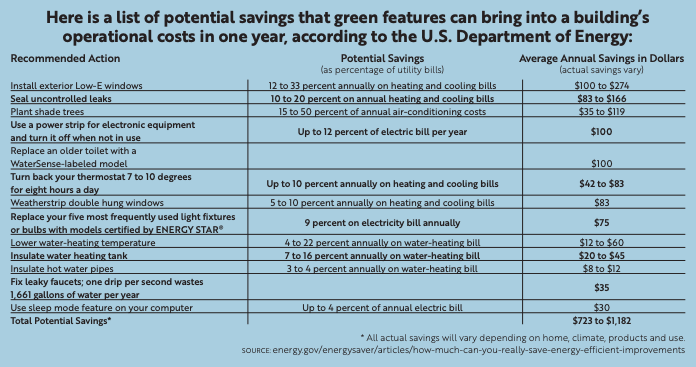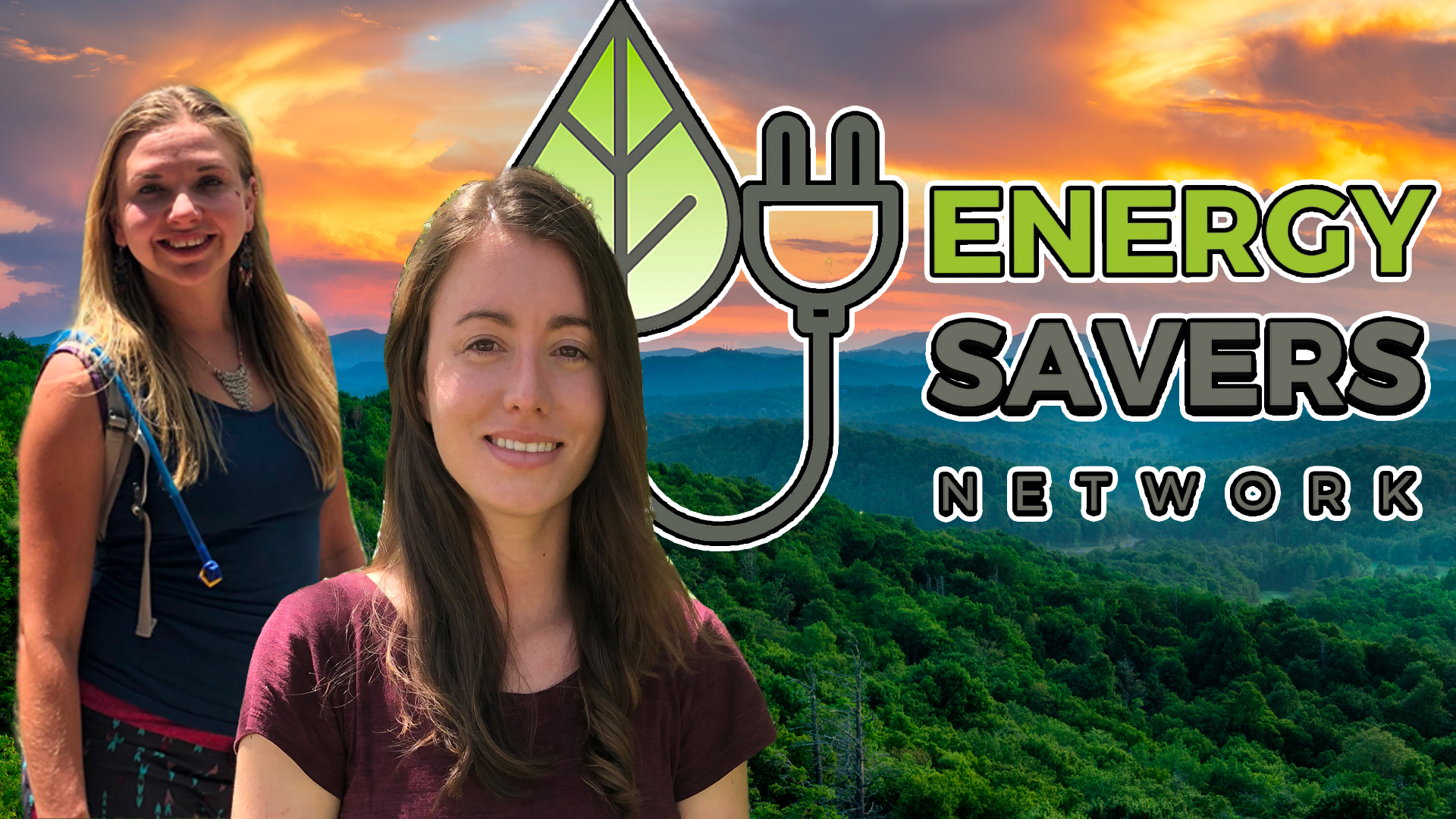Energy efficiency in Asheville homes is now more accessible to those with lower incomes through Energy Savers Network. We spoke with operations coordinator Yulia Shaffer and client scheduling coordinator Hannah Egan about the ways they provide assistance to the community.
“Energy Savers Network’s mission is to mobilize the community to work one house at a time to lower the energy costs for our modest income neighbors. Our volunteers provide energy-saving upgrades and education at no cost, plus identify options for greater savings. We offer this as one among many solutions to the twin crises of climate change and inequality.”
Essentially, it’s an initiative to make older homes and mobile homes more energy-efficient, reducing costs and the impact on the environment. Many energy efficiency groups focus on new builds and older homes in Buncombe County become neglected. When people live in older homes and low income, they don’t always have knowledge or resources to improve their homes. This can lead to higher utility costs and worsening health, furthering the poverty cycle. By focusing on education and free upgrades for people in this situation, ESN effectively tackles many issues disguised as one.

Why focus on energy efficiency?
Yulia is a former architecture student who moved to Asheville to study sustainability science at Lenoir-Rhyne. There, she learned that buildings have a huge impact on climate change, accounting for 60% of carbon emissions. Since she wanted to work in the community, she began as a volunteer with Energy Savers Network. In order to address climate change, they take action by recruiting volunteers and training them to do simple energy-efficient upgrades like changing light bulbs and wrapping water heaters. Energy efficiency is how your home is performing in terms of heating and cooling, and a few changes can make a big difference.
Hannah went to Appalachian State and also studied sustainability. She began as an intern at Green Built Alliance, the umbrella organization that Energy Savings Network falls under. As ESN grew, she migrated to work more with them. Among other responsibilities managing clients, Hannah liaisons with Duke Energy to get reimbursements.
Their clients are low-income folks in Buncombe county who fall below a certain income requirement. ESN finds clients at community markets and food pantries, although COVID has set them back. In the past, they would visit assistance programs like Eblen Charities’ Low Income Heating Assistance Program and offer to help those in the waiting room. They’ve expanded to other types of venues and are always trying to spread the word.
Working with Duke Energy
Energy demand has been growing in Buncombe, increasing in residents and costs are rising. Instead of jumping right into construction of a massive new power station, Duke teamed up the county and the Asheville city officials in 2016. They hired the Rocky Mountain Institute, a “genius” nonprofit research group, to study the region and look for how to delay plant construction and move toward cleaner energy.
One key result of that study pointed out that the most important thing to do is focus on low-income housing. So, Duke Energy has partnered with ESN to provide a “fee for service.” With the right paperwork, Duke reimburses the nonprofit for supplies. These include LED lights, air sealing, and low-flow shower heads. In addition, Duke supports their Helping Home Fund, with which volunteers go into homes and assist with repairing issues like holes, broken gutters, appliances and even HVAC services and upgrades. So although locals often have a bad view of Duke, the energy company heads are making moves toward a greener future and working with the community through programs like these.
Have you heard of the Energy Savers Network?
The organization isn’t quite well known in the community, and Hannah says they’re still building trust. When you offer free services, people sometimes look for a catch or are suspicious of people entering their home. However, Yulia says ESN is gaining momentum as well as volunteers and clients, and hopes to expand to other counties. They’re cautious to take on too much too quickly, so they support similar organizations like the Weatherization Assistance Program and share tasks.
They keep track of their clients so they can revisit them in the future and perhaps expand their scope to assist further. To screen clients, they must be income qualified. They also include lots of education in their outreach, but understand that different people have different needs.
Mobile home efficiency
The ESN can have a huge impact on mobile homes, which tend to be inefficient. Yulia and Hannah want to establish more relationships between the nonprofit and landlords, especially those who own mobile home parks. Some provide incentives, like a rent discount, for improving their efficiency with a basic energy upgrade.
One unique feature they provide is storm windows, since most mobile homes only have single-paned, inefficient windows. This can be a huge expense, so volunteers build custom storm windows and install them for clients. They have seen incredible performance results from this.
Join the cause
They’re always looking for people to spread the word about their programs and also for volunteers. It’s a great way to connect with the community.
Visit their website, call 828-585-4492 or email info@energysaversnetwork.org for assistance or to volunteer.




